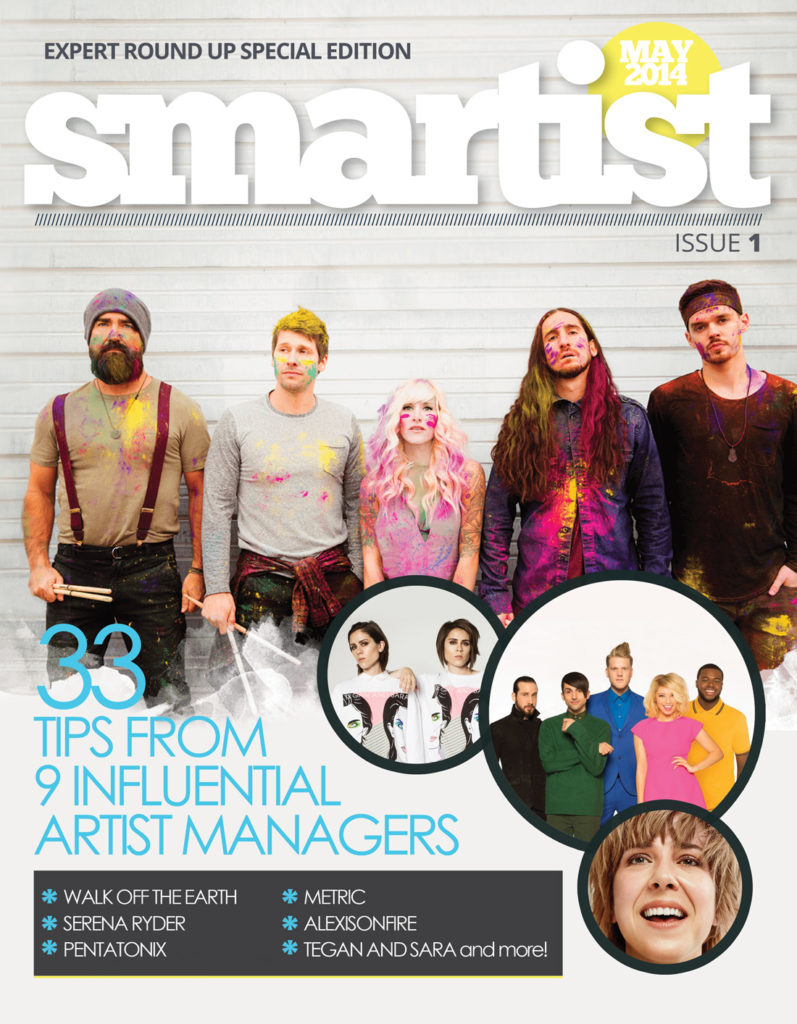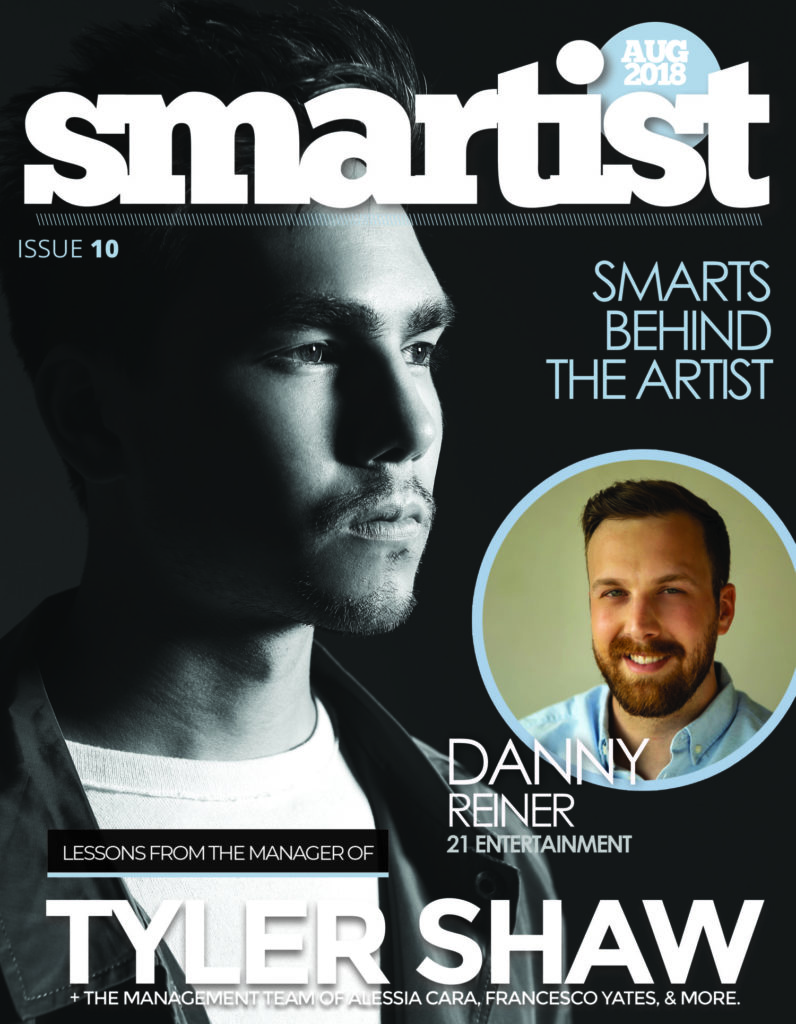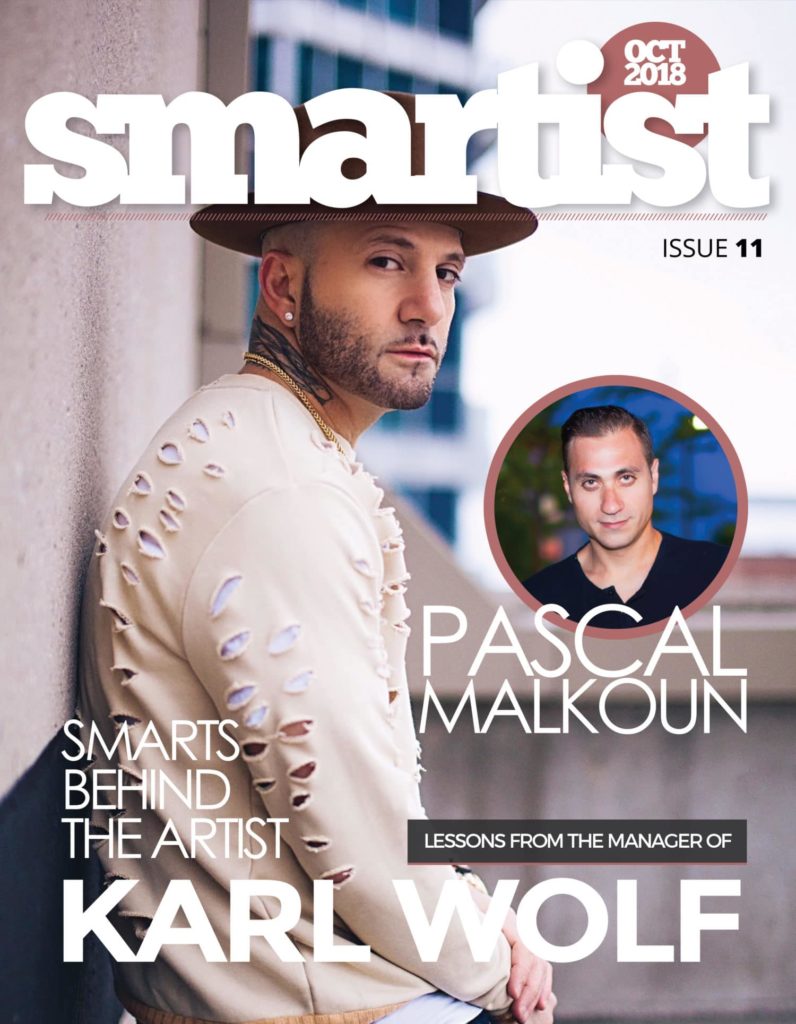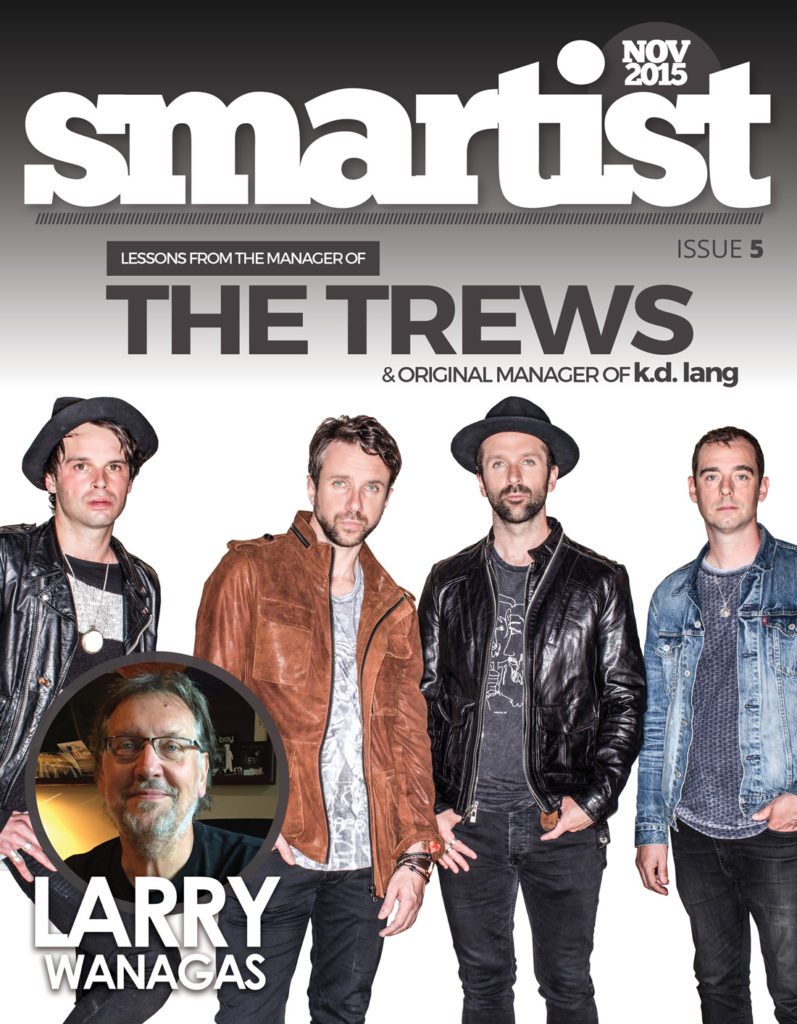33 Career Tips From Influential Artist Managers

“Expert Round Up” Grand Opening Edition!
For the special “Grand Opening” of Smart Band Management, I decided to do something a little different. What’s the grand opening, you ask? In May of 2013, we quietly put out a handful of articles to the world (aka on the website), and thanks to Google we started to gain a little bit of a readership. We essentially just let the articles hangout on the Internet. We didn’t tell our music industry friends, we didn’t post on social media, and we didn’t start an email list.
One year later, here we are, at the Grand Opening. Where we involve a bunch of industry, email our subscribers, share on social media, and have a hay-day! This special edition expert round-up interview includes several influential artist managers from around North America. Many of them have managed JUNO and GRAMMY Award-Winning artists from around the world. I simply asked them all to answer one question:
What are your top three priorities when managing a new artist?
Although this question is heavily loaded and can be answered in one hundred different ways, these managers came through with some priceless wisdom that you can take away with you immediately.
Larry Wanagas, Bumstead Productions (The Trews, Tim Chaisson)
- Strong grasp of artists self image
- Strong commitment to live performance
- Strong material
Matt Drouin, Crystal Math Music Group (Metric)
- Cultivate a direct relationship with your fans which cuts out the middle man. Harvest as many direct to fan touch points as you can (email sign ups, Twitter follows, Facebook likes, etc) and then engage and interact with your fans on a regular basis. Don’t spam them. But contribute content of all kinds continuously. Then when you need their help to accomplish something, they will be there for you. In my opinion, its the single biggest thing a new artist can do to help themselves.
- Develop a live touring base. Start in your home town. Build up an audience. When you have accomplished this at home, start visiting neighbouring markets. Don’t worry about touring across the country. Work your way out in concentric circles around where you live. Trade support slots with bands in other markets who are in a similar position. Cross pollinate your audiences. Help each other grow.
- And of course, focus on the music. That comes first. You can do everything right and fail, and you can do everything wrong and succeed. That is just the nature of the beast. But the gatekeepers are falling and the filters are fractioning and multiplying. The whole process is becoming less top down than ever. Which means it’s harder than ever to control the process. But its also easier then ever for music which truly has redeeming qualities to find an audience. Cream rises to the top as they say. And quality if hyper efficient in the highly network effected online environments people increasingly live in. If you have great music, and even a small fan base, but you give them the tools and the incentives to share your music, your base will grow.
Nick Blasko, Amelia Artists Inc. (Tegan and Sara, Buck 65, Gold and Youth)
- Material and Writing – this should be a constant, and it’s what drives everything else we do as managers.
- Touring – getting in front of audiences and developing a dedicated and authentic fan base.
- Positioning and associative wins – this can extend to that of media, support slots, festivals, brands, radio play, you name it. You want the best looks for your artists at all times.
Brent Bain, CO.PILOT AM (Sidney York, Gay Nineties, The Wet Secrets)
I cannot identify 3 priorities that work for all of my artists the same way, and so I think that sets the tone for my first priority:
- Invest in the relationship and know what the artist needs! Taking the time to have a relationship with your artist and understand their goals and ideas. Be open to what they want to accomplish and find creative ways to make that happen. This approach results in great communication and much stronger relationships. It also allows for the artist and manager to push each other and produce better results together. It also makes working together a pleasure!
- Build a plan together and develop a way to share updates regularly. This will depend on how involved an artist wants to be with the day to day operation of their careers, but it is likely to be more frequent in the early stage as trust is being established in the relationship. As things get rolling and get really busy, there is less time to keep up and it becomes important to have a system of communication and data management that is simple to use. Don’t forget to consider different work habits and styles. Custom solutions may be required sometimes.
- Keep everyone busy and updated! Whether it is the artist, the label, the publicist or the agent. The priority is to keep them focused on a task as much as is appropriate and keep them up to date on developments. Booking shows with more advance notice and building marketing campaigns in advance will only benefit your efforts. Do it if possible. Keeping the artist busy in a cycle of recording, touring, video production, showcasing, etc. will keep the momentum going. As long as the artist maintains a dialogue with their audience, you will be able to continue developing the artist consistently. Keeping this kind of balance will require working in different territories of course.
These three priorities don’t officially represent my top three. They are Just three that come to mind right now. Another approach to the question might have resulted in this list:
- Social dialogue (live & online)
- Register content and details with associations, PRO’s and royalty collection agencies
- Develop live performance and Radio opportunities
Jen Gillette, The Management Company (Walk off the Earth, Kongos, Kina Grannis, Audra Mae, Pentatonix)
- Making sure you have the right team in place – whether it be label, radio, publicists, agents, etc.
- Making sure the artist is happy.
- Recognizing their long term goals.
Jason Burns, Burnt Tree Entertainment (Hey Rosetta!, Old Man Luedecke, Rich Aucoin)
3 theoretical ones:
- The artists are as focused as we are. It’s all going to boil down to what their vision is for the whole thing, so they have to see it the clearest.
- They understand the work and sacrifice that’s about to go into this. Now that they’ve surrounded themselves with a team, they need to understand that those are real people with real passion and they’re about to adopt you and spend a lot of time and energy on you. And everyone’s a believer. It can be the most exciting and terrifying time all at once.
- Enjoy yourself!
3 practical ones:
- The artist sends stuff when asked. Or promised. It’s ok for the artist to be late delivering things to everybody but the manager.
- The artist understands their financial position. They understand whose money is being spent. And where that comes from. For example, there’s a lot of misconceptions out there that a band’s rider is just “FREE STUFF!” but lots of times it comes out of the artist’s very own ticket revenes. And sometimes a promoter makes a profit on spending that money:-)
- Their live show is the best in the town they’re from. The best in the province or state they’re from. And is going to be the best in the country.
Sandy Pandya, Pandyamonium (Serena Ryder)
- Have a vision. Don’t be like every other artist out there because that’s already been done. I tend to lean toward left-of-centre artists who are bold and courageous enough to take risks.
- Have passion and a drive. A lot of artists can write and perform really great songs but if the road life is something that gets you down easy, reconsider your choices. Most of an artist’s money is made from the road these days at any level.
- Be open to new ideas. Not everyone will have radio success so be open to various types of partner aligning that will be mutually beneficial to you and the brand.
Sari Delmar, Audio Blood (The Balconies, Highs)
- Building Value: Building value ties into EVERYTHING an artist does. Their perceived value in a situation, their real value, or their lack thereof will open or close all the doors this industry has to offer. Building value for an artist comes in the form of making strategic decisions carefully, seeking out great career-building opportunities (like festival showcases, support tours, syncs, or collaborations to name a few), and understanding the intricacies of the industry in order to best navigate it. When an artist has value, they seemingly have the world at their fingertips. Value comes in many forms, but usually it’s directly tied to how many bodies an artist can put in a room and/or how many drinks they can sell at the bar. A manager and artists’ career can hinge on how good you are at building value for your career. ‘Value’ is an elusive and sneaky thing, but I would argue that it is the basic and most important element of your job as a manager.
- Direction: A manager’s job is to bring business perspective and direction to the artist’s career. If artists were good at leading business strategy and understanding the market they probably wouldn’t be the greatest at their craft. A manager must always be planning and looking ahead. How do the decisions we make today affect our future goals and what exactly are those future goals? All key questions a good manager keeps in the back of their mind at all times. Laying out the plans is one part of building direction for your artists, but ruthlessly staying on track is another. There will be many distractions that present themselves along the way and gauging how this affects your plan to success is an equally important part of leading the direction of the artist’s career.
- Protect & Prevent: I would say the 3rd priority is to always protect the artist and their brand. Protect them from falling into a bad contract, from signing the wrong piece of paper, and making uninformed decisions that may come back to haunt them. Protect and prevent future headaches and setbacks. Managers bring their experience to the table each day and help artists make informed career decisions. As a manager there are so many ways you must protect your artist – not just in a business capacity, but in a mental and physical capacity, too. Protect them from burning out, take care of their needs, protect their vision and goals, protect their assets, protect them from getting screwed in bank fees, protect them from getting turned away at the border when going into a new country, protect them from getting ripped off by a promoter – and just all around be on guard to ensure no one can throw you for a loop. There are many more priorities that seemingly are always pressing all at the same time, but these are the top 3 I focus in on.
Joel Carriere, Bedlam Music Management (Alexisonfire, City and Colour, Moneen, Monster Truck, The Sheepdogs)
- Talent
- Drive
- Trust
All of this tucked into a warm bed of integrity.
Even though each of the responses above may seem different, there are actually a few very specific recurring themes found in each and every one of them. The best part about it is that none of them knew what anyone else was writing about. They simply knew the question and decided to answer in their own way.
Check out their top 5 priority points that stand out to me in this video/article here.





This was executed perfectly! Thank you for sharing this. Great information I can use as a template to help my homeboy.
Thanks for reading Xavier!
[…] mark that I decided to take it a step further and get some colleagues involved, and published our “grand opening” expert round-up article (which is one of the top read articles on the blog to […]
[…] our ONE year anniversary, I interviewed the managers of the artists I just mentioned, for a special expert round up interview that is still one of our most popular posts even though it was 4 years ago, because all their […]